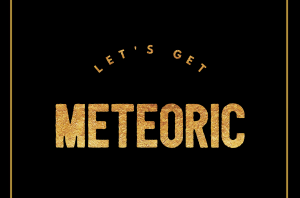This Is How AI Will Eventually Kill Social Media: Exploring the Dead Internet Theory
In the ever-evolving landscape of technology, we find ourselves at a crossroads where artificial intelligence (AI) and social media intersect. While social media has transformed the way we connect and share information, there is a growing concern about the rise of bots and their impact on the internet. Today, we delve into the thought-provoking concept known as the Dead Internet Theory, which suggests that AI-powered bots may eventually overshadow human presence on social media platforms. Join us as we explore this phenomenon and its potential implications.
The Rise of Bots:
As the internet continues to expand, so does the proportion of bots to humans. Bots, fueled by AI algorithms, are becoming increasingly sophisticated and pervasive. They can mimic human behavior, engage in conversations, and even generate content. The consequences are profound: the line between human and machine-generated activity is blurring, leading to an alarming transformation in the dynamics of social media.
The Dead Internet Theory:
The Dead Internet Theory posits that the influx of bots is turning social media platforms into virtual ghost towns, where automated entities outnumber real human users. This theory challenges our perception of the internet as a vibrant hub of human interaction and raises questions about the future of social media.
Effects on Engagement and Authenticity:
With the rise of bots, the authenticity of social media interactions is being compromised. Likes, comments, and shares lose their significance when a substantial portion is driven by automated accounts. This phenomenon can undermine trust and dilute the genuine connections that make social media a powerful tool for communication.
Disinformation and Manipulation:
The proliferation of AI-driven bots also poses significant challenges in the battle against disinformation. Bots can be programmed to spread fake news, manipulate public opinion, and even influence elections. The consequences of such manipulation can be detrimental to societal cohesion and democratic processes.
Regulating the Bot Invasion:
Addressing the escalating bot invasion requires a multi-faceted approach. Social media platforms must invest in advanced algorithms and machine learning models to detect and eliminate bot accounts effectively. Additionally, regulatory bodies and policymakers need to collaborate with tech companies to establish guidelines and enforce transparency in bot usage.
The Future of Social Media:
While the Dead Internet Theory paints a bleak picture, it also presents an opportunity for innovation. As AI technology progresses, so does our ability to differentiate between human and bot activity. Stricter regulations and improved algorithms could help restore trust and ensure a healthier social media ecosystem.
As AI becomes more advanced, the question of how it will shape the future of social media becomes increasingly relevant. The Dead Internet Theory challenges us to confront the escalating presence of bots and its potential impact on the authenticity and engagement that define social media. By understanding and addressing this issue, we can strive for a social media landscape that fosters genuine connections, upholds truth, and empowers human interaction. Only then can we truly harness the potential of AI without sacrificing the essence of social media.
Personal Thoughts
The internet has been “dead” for me more and more over the last few years, in that using it becomes less and less helpful/fulfilling. There are a couple of highlights still (iNaturalist, Wikipedia, some YouTube Channels and Reddit communities). But over all, spending time on the internet has become more and more of a pain, source of frustration, and waste of time.
Even though I was hugely excited about the future of the internet a few years ago, I’m withdrawing from it more and more now, and try to limit the impact it has on my life as much as possible.
Even when I go to a genuine website for a genuine product from a genuine manufacturer, the information is often junk. Companies no longer want to inform their customers about their products, they just want to bamboozle
Alternative argument
AI doesn’t have to be that sophisticated to manipulate humans though. For example, it just needs to post one triggering comment, then have other bots up-vote that comment so it’s prominently featured, then humans will take it from there and argue with each other generating division. So if your goal was to create distance between political groups in an other country for example, then all it would have to do is slightly nudge them towards generating more and more anger towards each other. With a large enough bot army it would be extremely easy and wouldn’t require anything nearly as sophisticated as GPT-4. The same can be done with bots that are only there to up-vote certain content and increase the view counter. It doesn’t need to be sophisticated, it just needs to target content that serves it’s agenda then making it look like a lot of humans are engaging with that content, because that will draw in more real humans. So if you wanted to for example sway humans towards a particular perspective on a conflict or whatever, you could just deploy an army of bots to seek out and interact with that content until it seems like that content represents the prevailing opinion of humans, and many real humans will be swayed simply by believing that this is the perspective of their peers, even if that is not true. So while GPT-4 and other sophisticated AI certainly has the ability to make this problem worse, it’s already been bad for a long time. And I’m not talking about the scammer bots that are super easy to pick out, I’m talking about the ones that has been voting on IMDB for at least a decade now, because this actually compels people into consuming content they’ve been misled into thinking there is consensus about it’s quality. While IMDB might be a relatively harmless example, the power to guide people towards content that expresses a particular world view is incredibly powerful if employed on a large scale, because it’s the information we consume that informs our own world view.
An easy way to see that dead internet is actually real is to just go browse old reddit threads from before 2012, you can see the difference in the conversation style, the content, and the smaller ratios. Also the posts just feel more human, more base.





